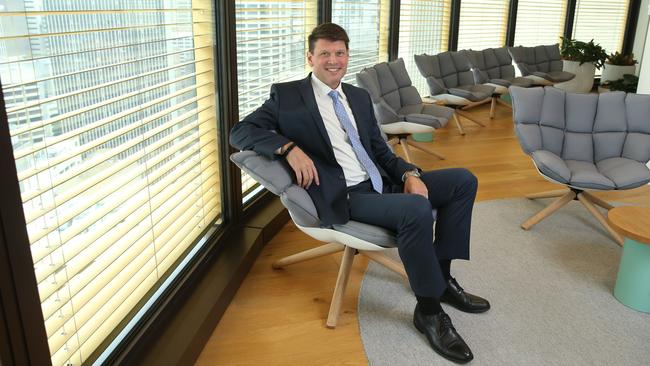AGL firm about gas import plant as prices fall
Power giant AGL Energy says the energy price crash will not dampen its appetite for developing Australia’s first gas import plant.

Power giant AGL Energy says the energy price crash will not dampen its appetite for developing Australia’s first gas import plant, with market volatility likely to eventually subside, leaving a looming supply shortfall forecast for the nation’s east coast.
Oil has plunged by 60 per cent this year to $US24 a barrel while average wholesale gas prices on Australia’s east coast fell by 38 per cent during the 2019-20 summer compared with a year earlier and averaged under $6 a gigajoule in February for Victoria and NSW.
Falling domestic tariffs threaten to undermine the economics of Australian LNG import projects, which are expected to offer imported fuel to industrial buyers in the $10-12 a gigajoule range.
However, AGL said it would look beyond near-term price ructions when assessing its Crib Point development in Victoria.
“The southern states and Victoria in particular risk being short of gas on peak days in a couple of years,” AGL chief executive Brett Redman told The Australian. “Crib Point is absolutely needed to supply gas into that market at the very time that industry is going to need reliable energy supply to get going again.”
Victoria, NSW and South Australia could experience gas shortages on peak demand days from 2023 as production from big offshore fields starts to dwindle, forecasts by the Australian Energy Market Operator found last week.
AGL had originally targeted imports from its planned $250m LNG import terminal in the first half of 2020 as part of plans to help ease a domestic supply crunch in the state and meet a gas shortfall in its own portfolio.
However, opposition from local groups and a decision by the Victorian government to conduct a full environmental assessment on the facility slowed momentum, with first gas now likely in the second half of 2022.
Still, Mr Redman said the business case stacked up despite falling domestic gas prices.
“My starting point has always been ‘is there a market need?’ and time and time again we see in a volume sense there is a need and therefore the machinations of global and local prices will come and go over the years. But if the volume is needed, there’s a business case. I believe there’s customers that are going to need that gas.”
AGL expects an environmental impact statement to be displayed in May, followed by public hearings and an eventual decision by the Victorian government on the project before year-end. A final investment decision will follow should it win regulatory approval.
The import plant could help offset falling production in the next few years if it proceeded, AEMO said in its gas supply report. “With this supply, if only existing and committed projects are otherwise available, then this import terminal in Victoria can support declining southern resources and is forecast to push back any forecast supply gaps by up to six years to 2030.”
AGL is one of four developers of LNG import terminals targeting east coast gas markets amid a backdrop of expected gas shortfalls as supplies fall from the Bass Strait.
Oil giant ExxonMobil in December canned the development of a gas import terminal in Victoria, blaming a lack of interest from customers to sign long-term contracts. Exxon first floated the idea of an import terminal nearly 18 months ago as it sought to take advantage of existing infrastructure at the Longford plant and tap into a new supply source, amid forecasts of gas supply shortages looming by 2022, partly due to production drying up from the Bass Strait.
The crimped markets on the eastern seaboard are due to Queensland LNG exports, onshore development restrictions, falling offshore production and the increasing cost of bringing new Australian gas supplies to market.


To join the conversation, please log in. Don't have an account? Register
Join the conversation, you are commenting as Logout